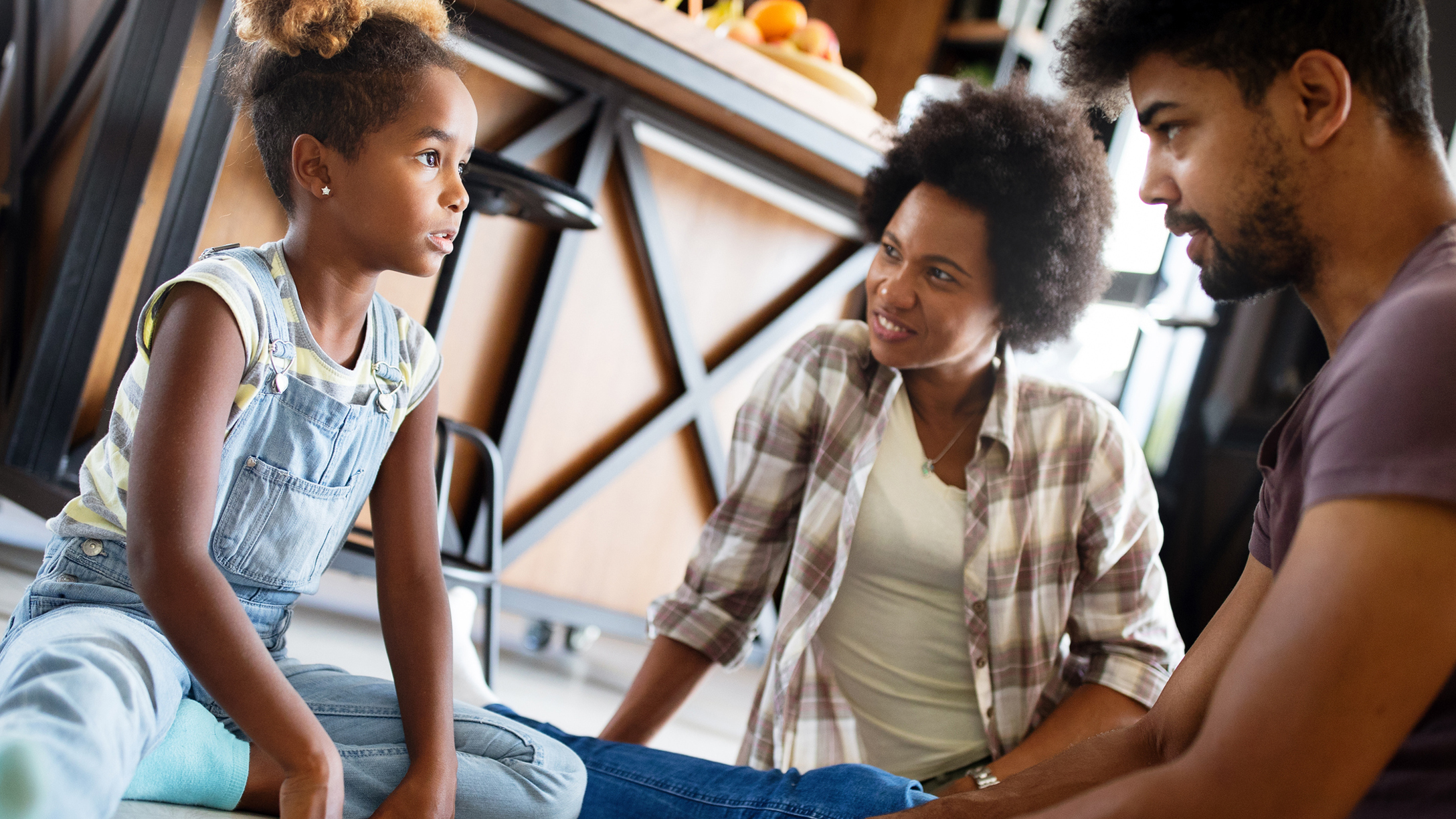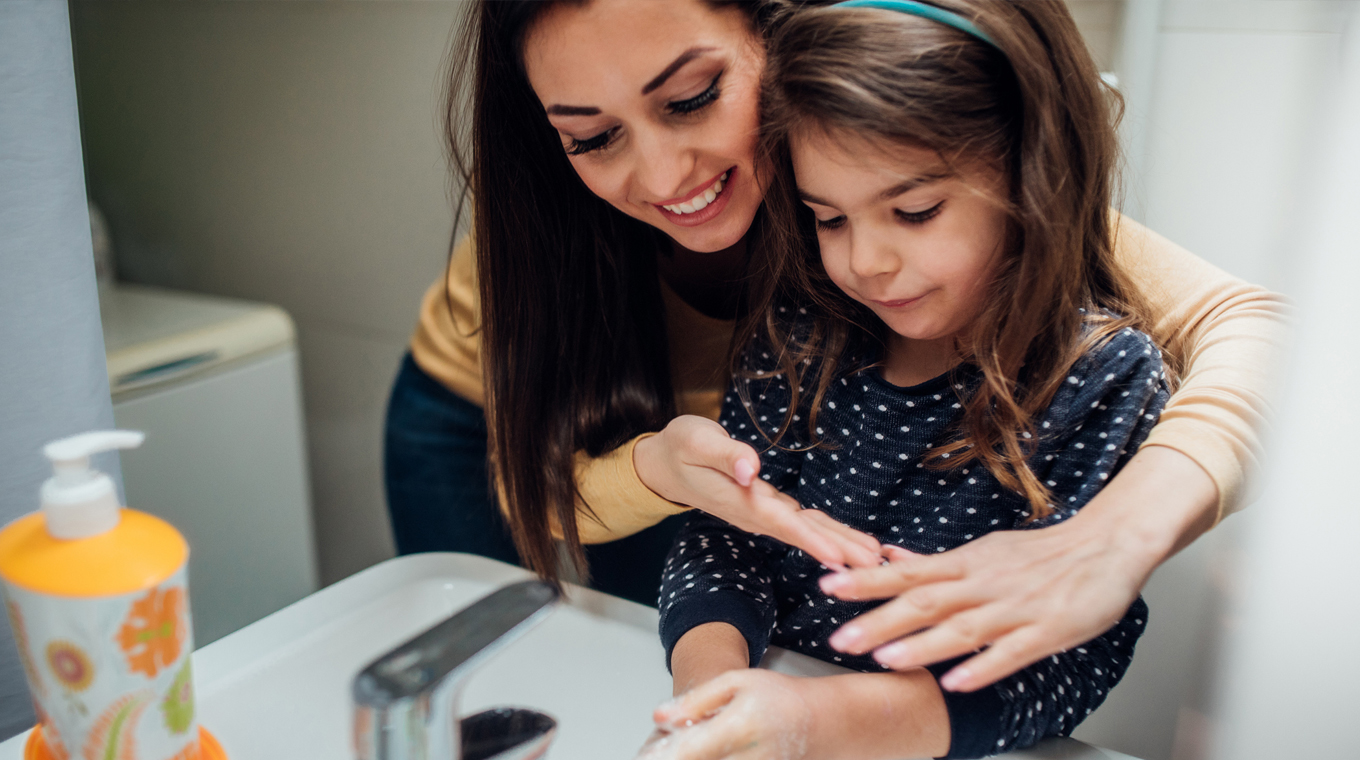
In this article
A recent Ipsos survey reported that four out of five Americans want cities quarantined in the event of a coronavirus outbreak. California is closing some schools for up to 30 days, with teachers running classes virtually. All the panic out there can certainly lead to very confusing and scary thoughts for children. It’s important to remain level-headed in all of this to prevent anxiety and stress from overwhelming our kids.
Having a conversation with your kids about the coronavirus is important. Before you do, though, make sure you fully understand what the risks are and how to protect your family.
What kids need to know about the coronavirus

Help your child keep what they may be hearing in perspective. Everywhere you turn, there’s a different news story about COVID-19, short for “coronavirus disease 2019.” Many of these stories are adding to the panic and havoc. While it’s important to remember that the coronavirus is certainly dangerous and can be deadly, the risk of becoming seriously ill is relatively low for most people, according to the Centers for Disease Control & Prevention. The people most at risk are the elderly, the immunosuppressed, and those with chronic medical conditions, such as diabetes or heart disease.
Influenza, more commonly known as the flu, is historically more widespread. Influenza has infected as many as 51 million Americans since the fall of 2019, killing as many as 55,000 people in the US.
Coronavirus, on the other hand, has infected over 170,000 people globally, killing more than 6,600 worldwide. There are over 3,800 diagnosed cases of COVID-19 in the US, with 67 reported deaths.
These are a few details to keep in mind when talking to your children about the risks and dangers of the coronavirus.
How to start the conversation with your kids

No matter how old your kids are, it’s important to start the conversation by asking them what they’ve heard. Whether they are in elementary school or in upper grades, other students and teachers have certainly been talking about the risk. Let your children talk about what they’ve heard and share any feelings they may be having, including their concerns and fears around being exposed to the the coronavirus.
It’s probably a good idea to limit the amount of TV your children watch right now. Most media coverage details deaths from coronavirus, more infections, and mass quarantines — which might scare kids. Let your children share their fears and then, together, develop a plan to help alleviate their anxiety.
“When parents manage their own anxieties, we are better parents, because we have the brain space to listen and support our children,” Eirene Heidelberger, a renowned parent coach, shared with Mom.com. “If you appear OK, they will be OK.”
What to say — and what not to say

What to say
My conversation with my son started with the facts, and then included how to understand the symptoms, the real risk, and how to avoid exposure to the coronavirus. I think it’s a good time to remind children that good hygiene is the best defense against the coronavirus, the flu, and any other germ that may negatively affect our health.
This is also when you should be talking to your kids about social distancing, and why things like playdates and parties need to be put on hold for now. Explain that while they or their friends might not be sick, they can still be carrying the virus and can pass it on to others.
Washing your hands, not sharing beverages or utensils, and doing your best to avoid contact with sick people is the best way to avoid getting any type of illness, including the coronavirus.
Be mindful of what kids may be hearing from friends and peers. Lynee Port’s elementary-aged daughter was told by a classmate that “everyone was getting sick and was going to die.” “I started with assuring her it was nothing to panic about. That, as her mother, my sole job is to protect her, so if I wasn’t panicking, she did not need to,” Port told Mom.com.
What not to say
The general consensus is that if you’re afraid, your children will be afraid. Watch your language and avoid routinely using words such as “deadly” or “fatal.”
As Heidelberger told Mom.com, “Control yourself, people! Keep yourselves together. Keep calm and carry on.”
This view isn’t to dismiss the dangers, but to instead put it in perspective: Every single day, regardless of the coronavirus, we are at risk of getting sick and, potentially, contracting a fatal illness.
Every single one of us needs to be vigilant about washing our hands, managing anxiety, and helping our children learn to cope with real dangers in a rational way.







